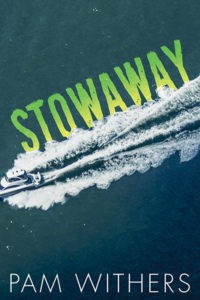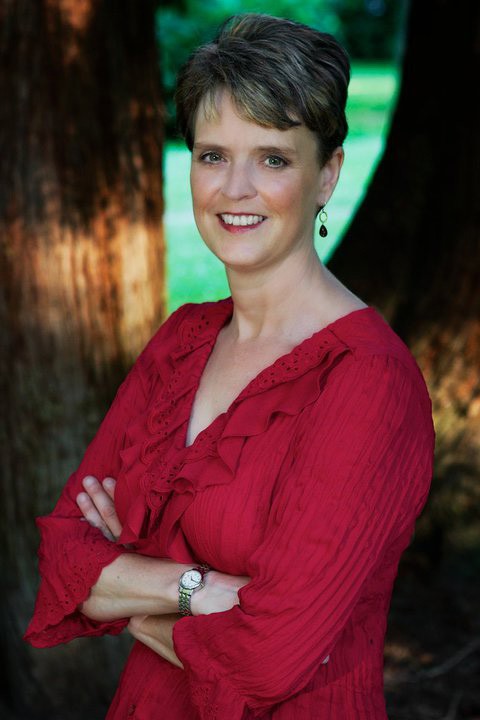 We’d just bought a cabin on a small island off the west coast of Vancouver, British Columbia, and it had a dock.
We’d just bought a cabin on a small island off the west coast of Vancouver, British Columbia, and it had a dock.
The contract concerning the dock had this line: “Section 6.1c, Moorage Law Covenants: You must provide without compensation temporary accommodation to any vessel that is disabled or that seeks shelter in weather conditions that would render it unseaworthy.”
My imagination immediately went into overdrive: What kind of weather conditions? You mean some strange boat might appear and tie up on our dock right beneath us some dark and stormy night? Carrying whom? Staying for how long? Going where? What shadowy things might they be up to? And what if I were alone?
It was indeed a dark and stormy night at the cabin that this story came to me. I could almost hear Arturo rapping on my window.
Of course, at the time the media was thick with stories of desperate illegal immigrants, especially in the Mediterranean. Including those who washed up dead from over-full, leaky, and rickety escape vessels, and one that really was a former livestock freighter abandoned by heartless crew members:
“In Europe?” I ask as I take the paper from him and scan the story. Illegal immigrants from the Middle East and Africa have been washing up on Europe’s shores for a while, dead or alive depending on their ships, the weather that week, and local rescue efforts. But the ghost-ship stories are the most haunting: immigrants paying for a berth on a boat that their handlers abandon mid-channel.
“Yeah, they locked up the passengers in the freighter’s animal pens, jammed the controls and took off in motorized lifeboats. So there was no pilot aboard as it tore across the Mediterranean at nine knots. Would’ve shipwrecked if the Coast Guard hadn’t eventually managed to board and evacuate it.”
“Brutal,” I say. “And must’ve been a complicated job for the rescuers.”
Clearly, that inspired a later scene and plot twist.
As for Arturo’s plight and character, I have been to South America numerous times, where fellow travellers have told me about vigilantes literally shooting street kids at night. I’d had my shoes polished by street kids there. Though getting into Arturo’s mind was a challenging task, he quickly grew much more important to the story than originally envisioned.
Of course, to pen this novel, I needed a good feel for the workings of boats. So, I spent a couple of pleasant days with three patient mariner consultants and friends: Mark Evans, Allen Slade, and Dennise Dombroski.
Mark and I literally sat side-by-side in “command chairs” in front of a large screen in his living room, writing the boating scenes together, working out the plot between meal breaks and visits to his own sailboat. We even dropped into a local marine supplies store to get the weight, feel, and cost of life rings. (And tossed Mark’s around on a cold, rainy day.) And he read and edited numerous versions of boating paragraphs.
Then there was the matter of actually choosing the vessel to feature. I knew the size I wanted, because it had to hold all those boys and make the long journey up the West Coast. My friend Allen Slade was over visiting me, standing on the deck of my cabin, trying to help me decide on my fictional yacht, when a yacht of the perfect size and description literally drew into our bay.
“That’s the one!” he said.
Hours later, I stepped off our dock into my kayak and paddled out to this yacht, with home-baked cookies straight out of the oven, a camera, notebook, pen, and autographed copy of my latest young-adult novel.
“Hi!” I greeted the surprised occupants as my kayak touched their stern. “Welcome to our bay! Love your boat. Do you ever allow visitors aboard to look at it?”
Wasn’t I lucky that my hosts Joseph and Laurie Payne were onboard, super-friendly, and willing to let me climb aboard and tour their Hans Christian Independence 45? They even allowed me to photograph their engine room, closets, and other potential hiding places, although I decided it was prudent not to tell them immediately that I was turning their yacht into a people-smuggling operation.
Around this time, my son was on his fifth summer of tree-planting in northern British Columbia, and I was reading Charlotte Gill’s beautifully written Eating Dirt: Deep Forests, Big Timber and Life with the Tree-Planting Tribe. I also came across the troubling news story of Congolese workers treated like slaves at a tree-planting camp in Golden, British Columbia, Canada in 2010 (B.C. Human Rights Tribunal case against Khaira Enterprises). So that’s where the tree-planting episode came from. My son helped with some of the tree-planting details and edited those sections for me. As for the escape tugboat, that was based on Allen Slade’s own boat.
Finally, the completed novel went to Malcolm Scruggs, my outgoing teen editor, and Vansh Bali, my new teen editor (I fire ’em when they turn 18 J). They reviewed plot, action, and characters in general, and teen language in particular.
Some will wonder why this novel, unlike my others, has virtually no females in it. I chose to put a group of boys from a boys’ school on the yacht because mixing people smugglers and young girls would bring on potential situations I did not want to get into.
Finally, as I list in the book’s acknowledgments, I appreciate the input of Lynn Bennett, my agent; Steve, my husband; Shannon Young and Silvana Bevilacqua, valued friends; and Ben, David, and Leanne of my writers’ group.
Recommended further reading and viewing: Wolfgang Bauer’s gripping Crossing the Sea with Syrians on the Exodus to Europe (2016, andotherstories.org); How I Became the Mr. Big of People Smuggling by Martin Chambers; The Jaguar’s Children by John Vaillant; and The Devil’s Highway by Luis Alberto Urrea. Also, the movie Frozen River.
SAVING LIVES AT SEA
http://www.moas.eu/: Many deaths from drownings (including those of young children) result from overcrowded vessels of refugees attempting to reach safe shores. These are worsened by the limited resources of organizations like the Coast Guard capable of rescuing them. To help prevent tragedies, the Migrant Offshore Aid Station (MOAS), based in Malta, operates boats to offer food, water and medicine to migrants in need. They also escort at-risk vessels to shore so their occupants can apply for asylum. At the time of this novel’s writing, MOAS had saved more than 12,000 lives. I encourages readers to fundraise for this organization. A percentage of profits from this novel will be sent to MOAS.

